Reading List: 9 Books to Understand Post-Growth Economics
Curious to learn more about the post-growth movement? Check out the following subject overviews, textbooks, manifestos, and more.
Last year I published a degrowth primer and reading list. I’d meant to publish my corresponding post-growth primer and reading list shortly thereafter, but it turns out good research takes time! Go figure.
I’m happy to report that at last they are both done and ready to be out in the world. Today I’m excited to present the official Reality Studies Post-Growth Reading List. (The post-growth primer drops Thursday—tell your friends!)
What follows is a non-exhaustive list of worthy reads that will help you get your arms around post-growth economics, as well as adjacent ideas that might also inform your thinking.
Note: I’m not going to be repeating the titles I published last in my degrowth reading list, for what I hope are obvious reasons, but there is a ton of overlap between the two. I encourage you to check those out as well if you’re looking to build out your alternative economics library.
9 Books to Understand the Post-Growth Movement
As with the degrowth reading list, this reading list has an intentional recency bias—obviously texts like Limits to Growth, Beyond Growth, Farewell to Growth, Small Is Beautiful, are foundational, and I do recommend those if you have the time and inclination. These texts certainly “hold up”—there are plenty of ways that the ideas in both LtG, BG, and FtG track precisely with contemporary degrowth/post-growth ideas and arguments. That said, the texts below recap the primary arguments and information, with the added benefit of reacting to events that took place during the many years following their publication.
One reading that is not a book, but is absolutely required reading, is the Jan. 2025 “Post-growth: the science of wellbeing within planetary boundaries,” a review published in The Lancet by some of the leading minds in degrowth/post-growth.
Post Growth: Life After Capitalism, Tim Jackson (Polity Press, 2021)
Prosperity Without Growth is considered a defining text in the contemporary post-growth movement (more on that below). In this thorough, excellent followup, author Tim Jackson further explores pathways beyond capitalism, envisioning an economy that transcends the growth imperative and fosters human flourishing within ecological limits.
📖 Available here.
Post-Growth Living, Kate Soper (Verso Books, 2020)
One major critique leveled at post-growth and degrowth is that they don’t inspire progressive visions of the future; they give the sense of “stifling” or constraining the good life. Kate Soper’s Post-Growth Living offers a powerful counter in the form of “alternative hedonism,” a new conception of pleasure focused on the joys of community, leisure, and minimal ecological impact rather than status-driven consumption. As someone trained in writing, storytelling, and communications, I love this reframing—which emphasizes how a shift in values can actually lead to a more fulfilling life, one that de facto embodies post-growth philosophies.
📖 Available here.
Post-growth Economics and Society: Exploring the Paths of a Social and Ecological Transition, Isabelle Cassiers, Kevin Maréchal, and Dominique Méda (Routledge, 2017)
This collaborative work examines the possibilities of transitioning to a post-growth society, focusing on social and ecological aspects, in more of a textbook format. The authors analyze current economic systems and propose alternatives that prioritize sustainability and social wellbeing. This book is for folks seeking rigorous academic research paired with practical proposals, whether coming to the subject for the first time or looking to deepen existing understandings.
📖 Available here.
The End of Growth: Adapting to Our New Economic Reality, Richard Heinberg (New Society Publishers, 2011)
The End of Growth builds on some of the arguments Richard Heinberg laid out about in Peak Everything: Waking Up to the Century of Declines (New Society Publishers, 2007)—namely that, counter to the explosive productivity of the 20th century, the 21st century had reached peak productivity and is now slowing down in the face of biophysical limits. Here, Heinberg discusses the limitations of continuous economic growth in the context of finite natural resources. He argues that society must adapt to a new economic reality where growth is no longer possible and explores strategies for achieving sustainability.
📖 Available here.
Prosperity Without Growth, Tim Jackson (Routledge, 2009)
While I would normally try to avoid including two books by one author, Prosperity Without Growth is such a vital text in the development of contemporary post-growth ideas—arguing for redefinition of prosperity that prioritizes human wellbeing and ecological sustainability—that I’d also be remiss not to include it. Plus, it was “substantially revised and re-written” for its second edition in 2016, contemporizing an already landmark text known for demonstrating “that building a ‘post-growth’ economy is a precise, definable and meaningful task.”
📖 Available here.
Growth Fetish, Clive Hamilton (Pluto Press, 2004)
Perhaps the most provocatively titled book listed here, Growth Fetish focuses on the political, social, and ethical dimensions of the growth imperative. Clive Hamilton critiques the modern obsession with economic growth, arguing that it does not necessarily lead to increased happiness or wellbeing. He suggests that this ‘growth fetish’ contributes to environmental degradation, social inequality, and unhappiness—and proposes a politics of change for rich countries to navigate away from this unfulfilling way of being.
📖 Available here.
Adjacent Works
Post-growth lives within a “movement of movements,” overlapping with many different proposals and theories. The following books don’t center post-growth outright, but invoke necessary ideas in evaluating and expanding the concept.
The Serviceberry: Abundance and Reciprocity in the Natural World, Robin Wall Kimmerer (Scribner, 2024)
Robin Wall Kimmerer explores “the ethic of reciprocity that lies at the heart of the gift economy” through the lens of Indigenous wisdom and ecological science. She advocates for a shift from the contemporary consumption-based economy to one that values reciprocity, community, and the gifts of the natural world, drawing on the serviceberry (also known as the juneberry or saskatoon berry) to “show us another model…where wealth comes from the quality of your relationships, not from the illusion of self-sufficiency.” Gift economies rehumanize the exchange process, and draw us back into community with each other, away from the inherent alienation late capitalism creates. In the same vein as “alternative hedonism,” local (or distant) gift economies make for quietly radical disruptions to the consumerist status quo.
📖 Available here.
The Price is Wrong: Why Capitalism Won't Save the Planet, Brett Christophers (Verso Books, 2024)
Brett Christophers critiques the capitalist approach to environmental issues, i.e., so-called “green growth,” arguing that market-based solutions are insufficient to address the ecological crisis. Historically, many advocates of so-called renewable energy sources like solar and wind have pointed to the need for price to come down to compete with fossil fuels—but we’ve now reached a point where there is price parity, and humanity is burning fossil fuels at record pace. What gives? Christophers argues that we’re looking at the issue all wrong. Price is not the right way to evaluate the success of the energy transition—profitability is. And because of a whole host of factors he describes in close (but accessible) detail, renewables are still not nearly as profitable as fossil fuels, and perhaps never could be. Understanding why there may be incompatibility between renewables rollout and capitalism—given the role such energy sources play in any post-growth conception—this book is a must-read.
📖 Available here.
The Deficit Myth: Modern Monetary Theory and the Birth of the People's Economy, Stephanie Kelton (PublicAffairs, 2020)
Modern Monetary Theory (MMT) is another heterodox macroeconomic theory that argues government spending is not “revenue-constrained,” and can finance debts by creating money—a proposal with its fair share of criticisms and detractors. Still, MMT offers tools for funding policies that would support a transition toward a post-growth economy. Kelton is a leading proponent of MMT, and her recent book is a great starting point to understanding the theory’s basic claims.
📖 Available here.
Further Reading
I can’t help myself! A few other books that will deepen your understandings of (and appreciation for) the post-growth movement:
Overshoot: How the World Surrendered to Climate Breakdown, Andreas Malm & Wim Carton (Verso Books, 2024)
Planet on Fire: A Manifesto for the Age of Environmental Breakdown, Mathew Lawrence & Laurie Laybourn-Leighton (Verso Books, 2021)
How on Earth: Flourishing in a Not-for-Profit World by 2050, Jennifer Hinton & Donnie Maclurcan (Post Growth Publishing, 2016/19)
Who Really Feeds the World? The Failures of Agribusiness and the Promise of Agroecology, Vandana Shiva (North Atlantic Books, 2015)
Balance: The Economics of Great Powers from Ancient Rome to Modern America, Glenn Hubbard & Tim Kane (Simon & Schuster, 2013)
The Spirit Level: Why Greater Equality Makes Societies Stronger, Richard Wilkinson and Kate Pickett (Bloomsbury Publishing, 2009)
Wim Carton & Andreas Malm: Overshoot & Climate Breakdown | Urgent Futures #39
Welcome to the Urgent Futures podcast, the show that finds {signals} in the noise. Each week, I sit down with leading thinkers whose research, concepts, and questions clarify the chaos, from culture to the cosmos.
And…if you made it this far, I’m rewarding you with a snapshot of a few of the books recommended in my Degrowth Reading List:
Less Is More: How Degrowth Will Save the World, Jason Hickel (Penguin Random House, 2020)
Slow Down: The Degrowth Manifesto, Kohei Saito (Astra House, 2024)
Technofeudalism, Yanis Varoufakis (Melville House, 2024)
Doughnut Economics: Seven Ways to Think Like a 21st-Century Economist, Kate Raworth (Chelsea Green Publishing, 2017)
Did you like this post? Please consider a free subscription, which will bring more like this directly to your inbox:



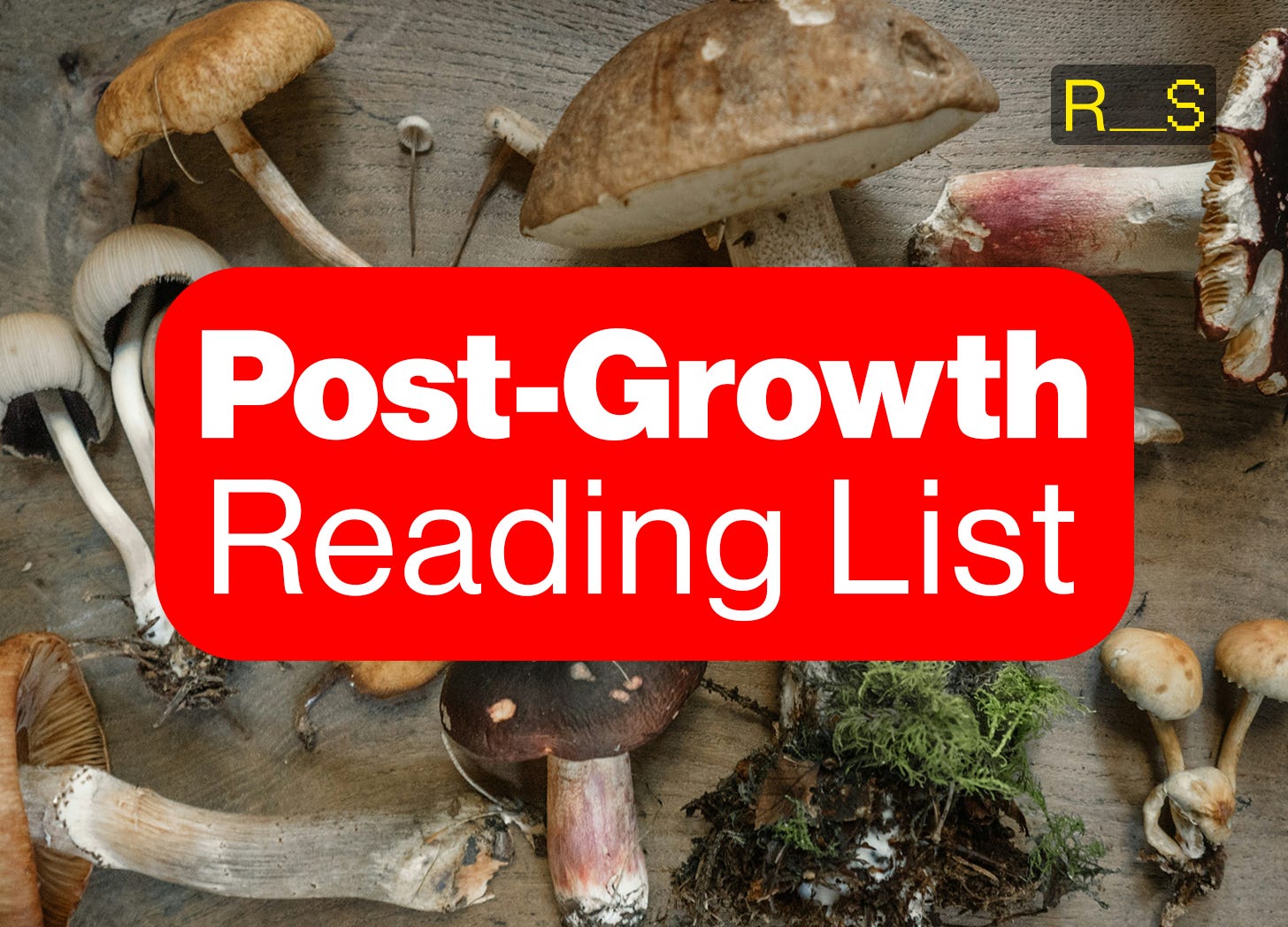


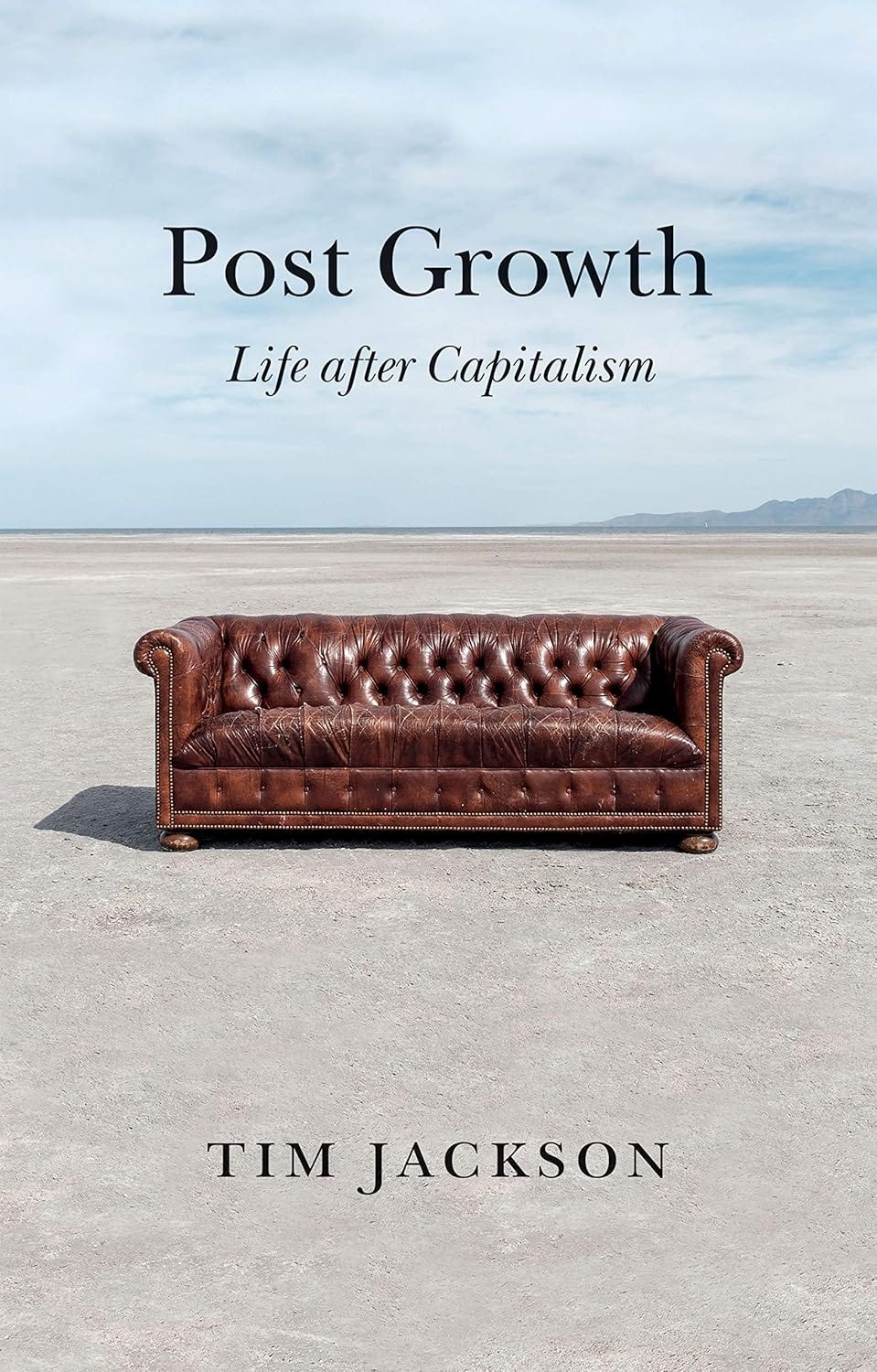

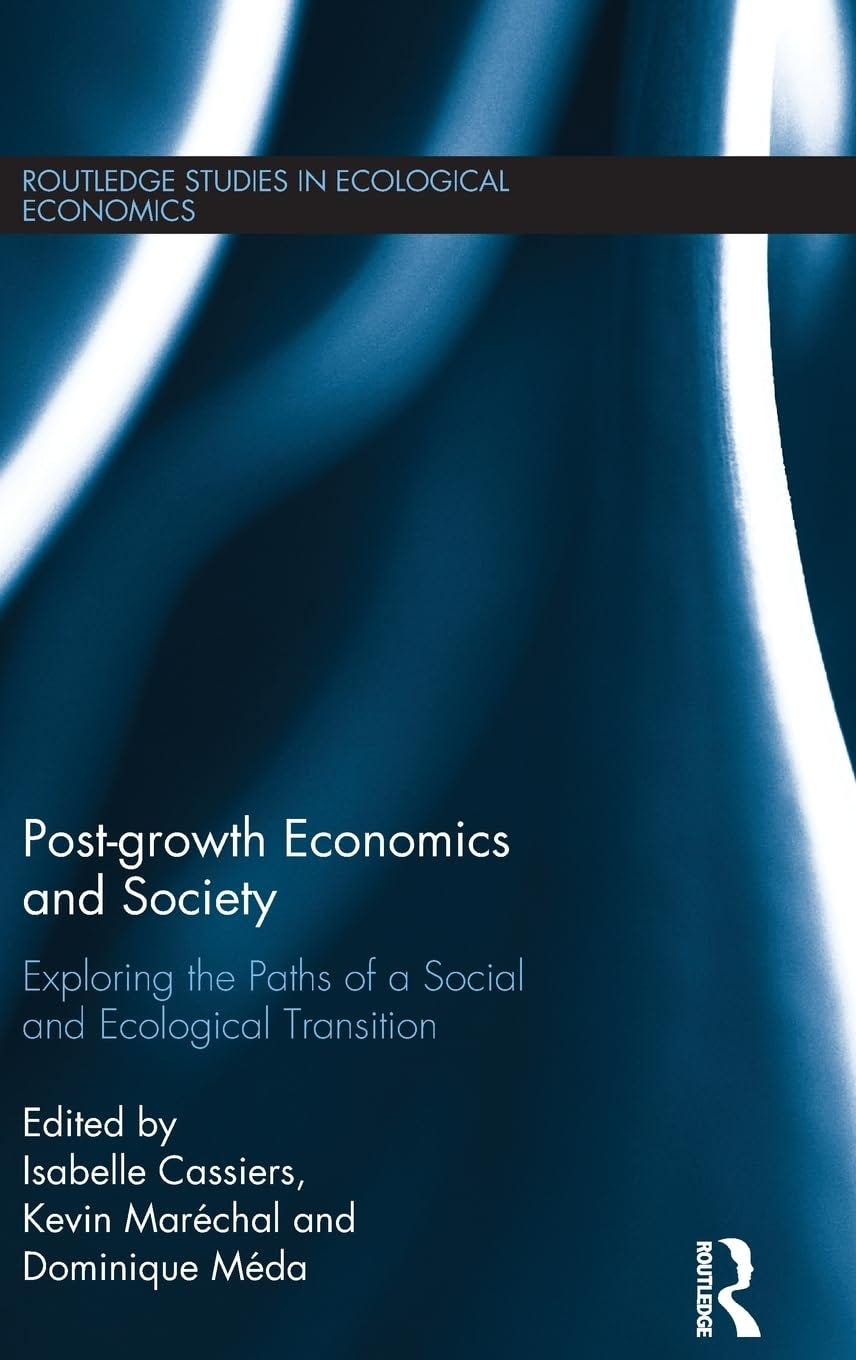
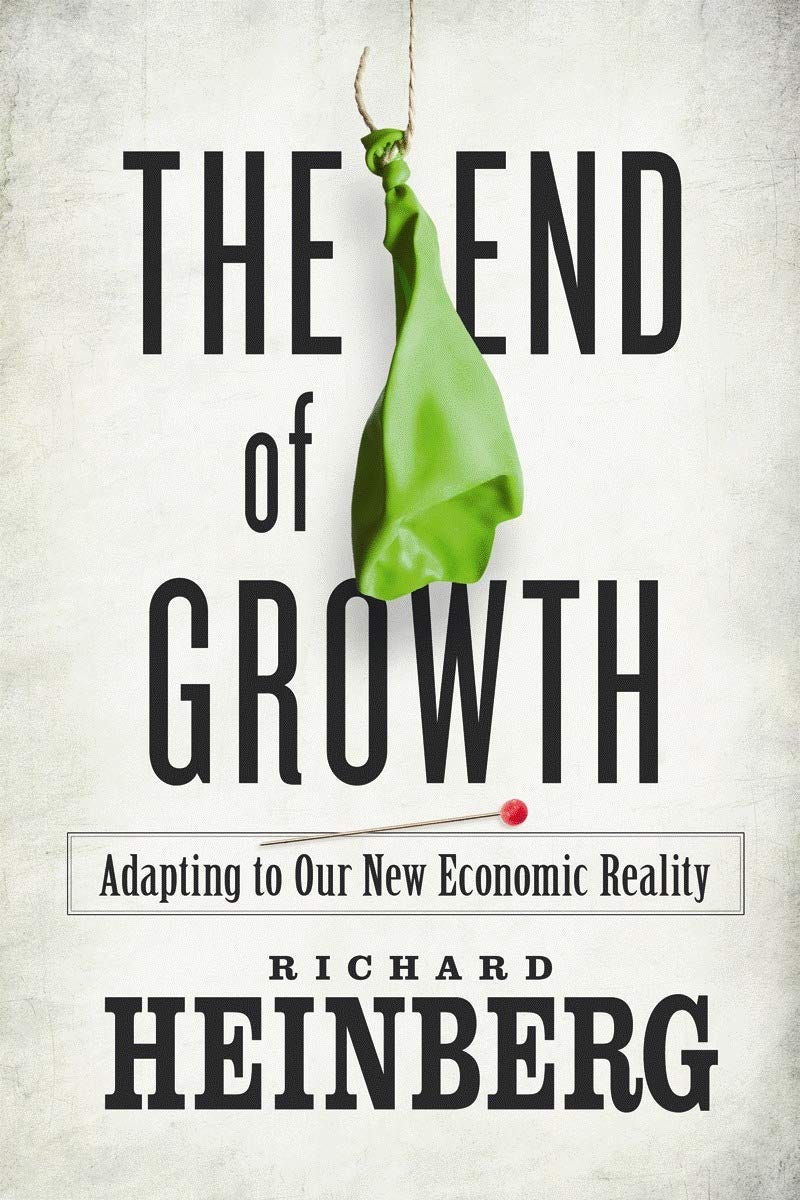
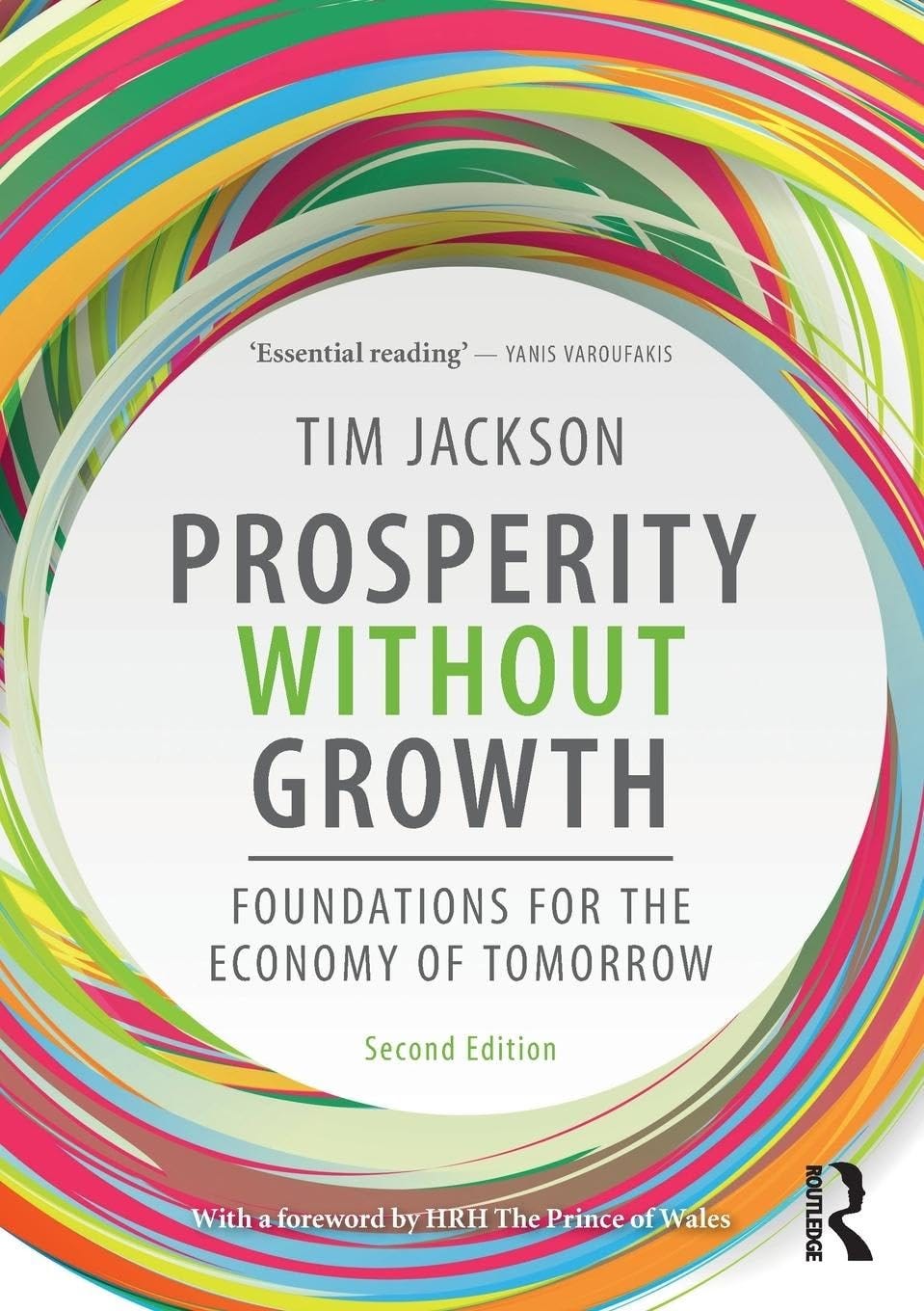
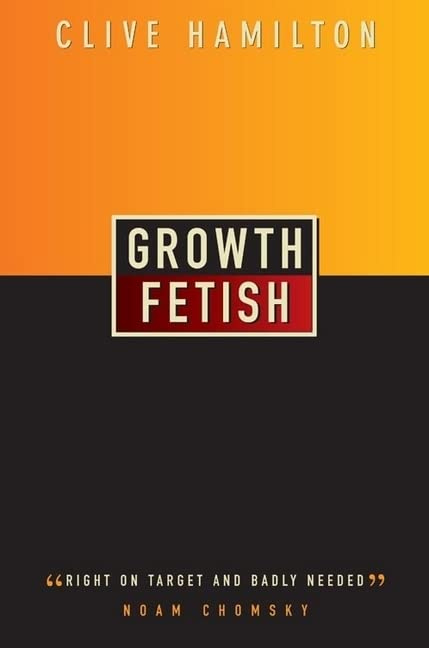

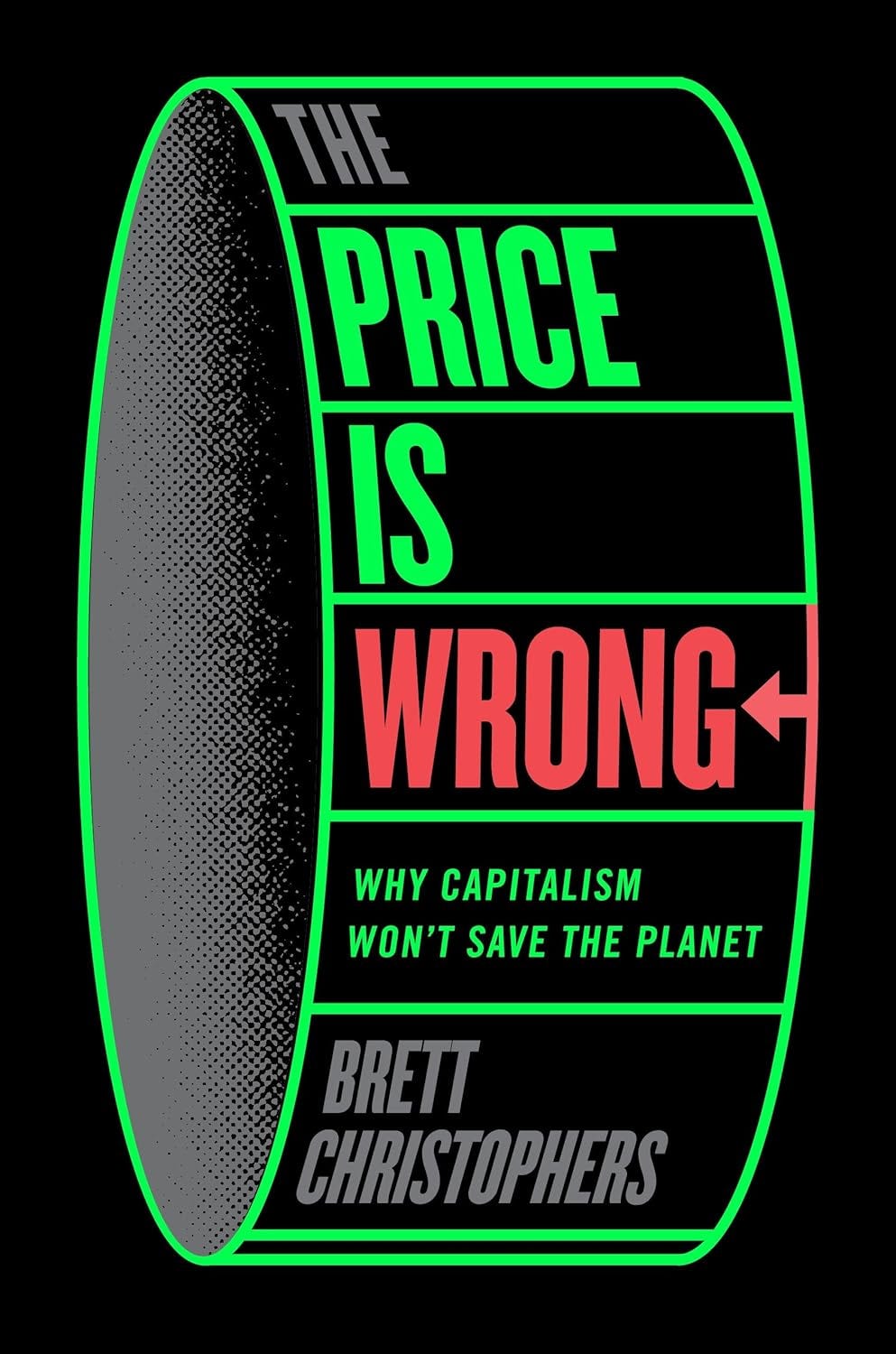


Less is truly more!